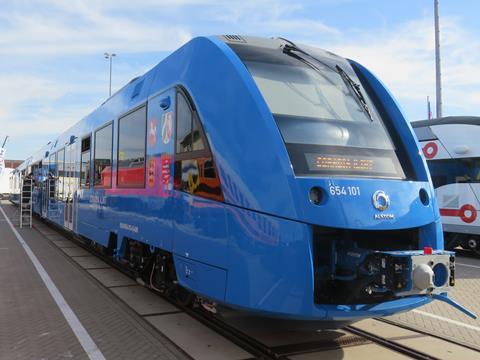
GERMANY: Electrification, battery power and fuel cells are the most sensible options for replacing diesel multiple-units, according to an environmental and value-for-money study undertaken by the Association for Electrical, Electronic & Information Technologies.
The Alternatives to DMUs in Rail Passenger Transport study was undertaken by VDE with funding from the Federal Ministry of Transport & Digital Infrastructure.
Confirming that electrification would be the best option for meeting targets of decarbonising rail transport by 2050, especially on busier routes, the study recommends that planning processes should be made faster and costs of €2m/km reduced to facilitate wiring of the remaining 40% of the German network. However full electrification of lightly used routes is unlikely to be economically viable in the foreseeable future, the authors say, and so alternatives ways of displacing diesel traction are needed.
The report says battery operation is the best option for routes with unelectrified sections of up to 80 km, with the traction batteries being charged from overhead lines elsewhere on the route.
Fuel cells are the seen as the best option for routes with long gaps in the electrification, however these would require hydrogen production and supply infrastructure to be put in place.
The report says battery and fuel cell technologies should be equal priorities for development, with political support provided to mitigate implementation risks.
The authors did not consider electro-diesel or diesel-battery options, as rolling stock life-cycles mean these would be a potentially expensive investment in what would only be a ‘transitional measure’.

















